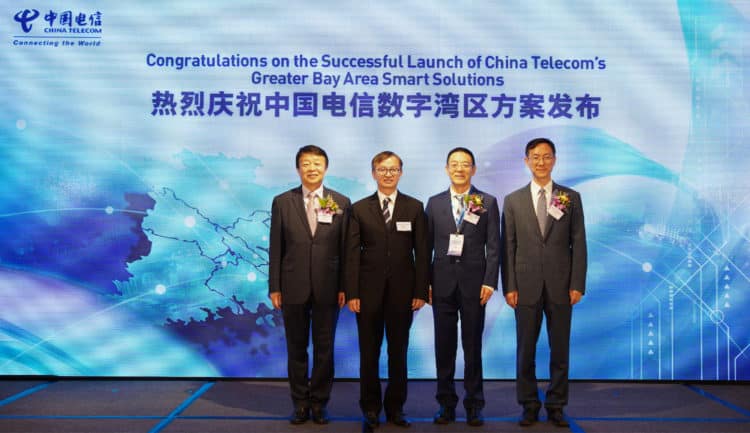China Telecom is actively promoting cloud-network convergence in the Greater Bay Area, according to its CEO Deng Xiaofeng.
“As the only mobile operator with licenses in Mainland China, Macao and Hong Kong, China Telecom provides customers in the region with integrated mobile data packages, allowing them to use one SIM card to access the mobile network of all three territories and enjoy seamless cross-border mobile communication,” he said.
“This innovative service will not only enable enterprises in the Greater Bay Area to easily support the development of both the Internet of Things (IoT) and the Internet of People (IoP), but also it will benefit businessmen and overseas visitors in the region as they seek to embrace efficient and convenient mobile technologies,” he added.
The new Asian cluster known as the Guangdong-Hong Kong-Macau Greater Bay Area, or simply Greater Bay Area, comprises nine cities in China, plus the two special administrative regions of Hong Kong and Macau.
According to a South China Morning Post article, the Greater Bay Area occupies less than 1% of China’s land area but contributes 12% of GDP; its combined population of about 70 million in 2017 is more than the whole of the UK and twice that of Canada.
Driving network development in this area with competitive, high-speed, and secure connections is not entirely new to China Telecom.
In recent years, it has built several large-capacity networks in the area, including the Hong Kong-Zhuhai-Macao Bridge Network Interconnection System, Shenzhen-Hong Hong and Zhuhai-Macao fibre networks, local optical networks in Hong Kong, and backbone extension networks in Mainland China.
These networks span major hubs and data center zones in all the 9+2 key node cities across the region, according to the company.
China Telecom has also created the “FIRST” Premium Leased Line offering end to end intelligent control and bandwidth scheduling.
“Each city in the region will benefit from a minimum of two nodes, multi-routing and full grid connection,” it said. “Thanks to the new service, customers can create a 0.675ms bilateral connection between Hong Kong and Shenzhen.”
Going forward, China Telecom said it will continue to fully support the rapid development of the digital economy in the Greater Bay Area.
An article published in Forbes dubbed the Greater Bay Area as China’s Silicon Valley.
On June 18, a news release issued by the Government of the Hong Kong Special Administration reported that Nicholas W. Yang, Secretary for Innovation and Technology, attended the first meeting of the task force on the development of an international innovation and technology hub in the Greater Bay Area (task force) in Beijing.
The agenda of the meeting, it said, was to “discuss work related to the development of an international innovation and technology hub in the Greater Bay Area.”
Yang was quoted as saying in the report that “work is in progress in developing an international innovation and technology hub in Hong Kong.”
He said this work consists of “setting up of two world-class research clusters on healthcare technologies and artificial intelligence and robotics technologies, developing technological infrastructures, and facilitating the flow of key factors of scientific research within the Greater Bay Area.”



